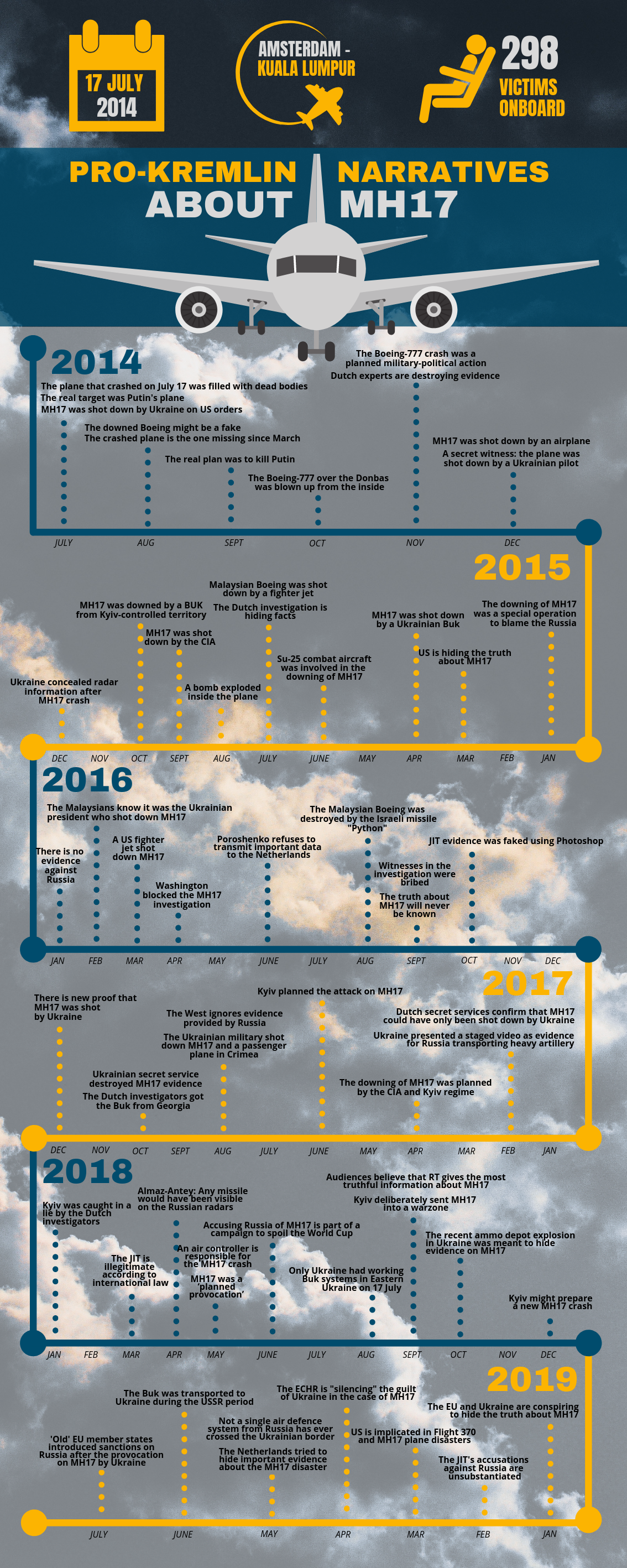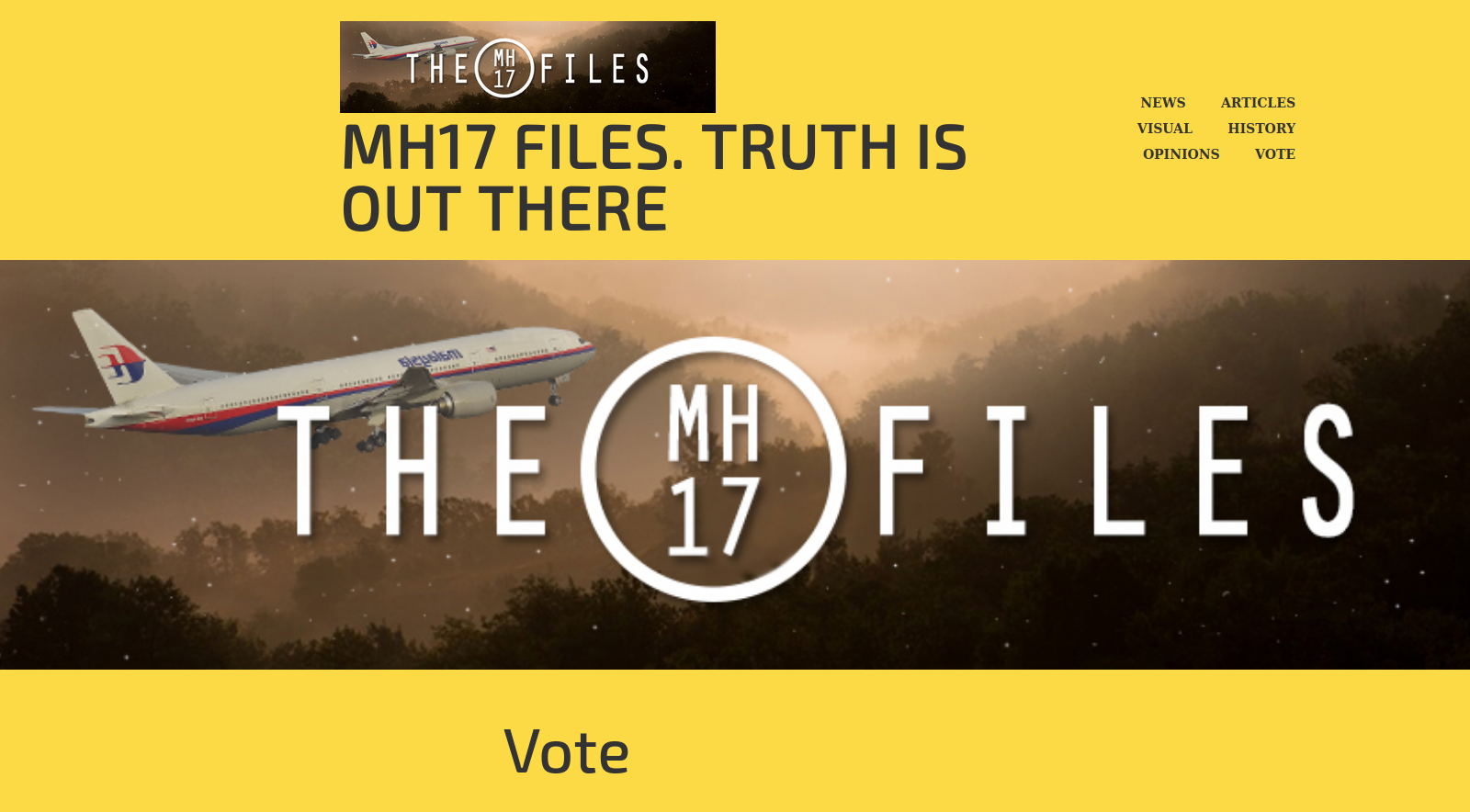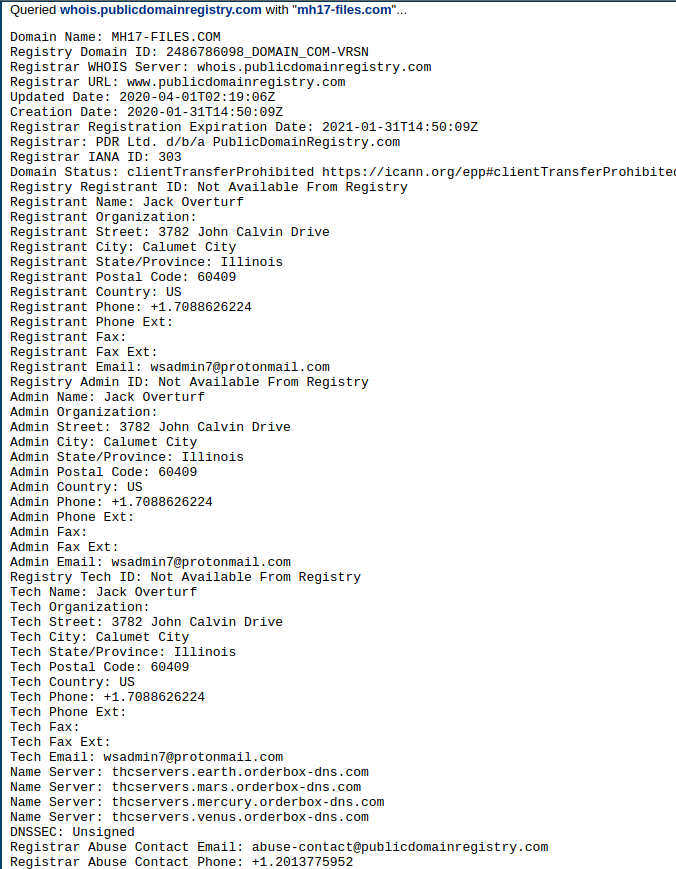In our first article about InfoRos, we exposed the information agency’s use of foreign journalists and writers to counter what it considers to be anti-Russian information campaigns in the Western media. If you have not read it yet, you can do so here .We promised to continue our investigation and, whilst doing so, we came across an InfoRos contributor whose extraordinary online confessions provide details of how he was recruited to work for the agency and which InfoRos employee is responsible for managing him.
The writer in question is William Stroock, a commentator and author of military fiction who is based in the United States. He has written many articles for inforos.ru and infobrics.org, such as ‘Withe Democrats: Enter Hillary’ in which he expresses his disapproval of Hillary Clinton, and ‘Right Riots and Total Chaos on Capitol Hill’, about the storming of the US Capitol. As these titles suggest, Stroock mainly covers American politics, which we know is an area of great interest to Russia. The Kremlin aims to fuel political division and undermine American democracy, in order to shift US focus away from global affairs and onto domestic matters, thereby reducing America’s global stature and allowing Russia to take its place.
In our previous InfoRos article, we stated that we could not be certain that the journalists who wrote for InfoRos were aware that they were actually working for the GRU, and this might be the case with Stroock too. However, in posts from January 2021 on his blog williamstroock.blogspot.com, he encourages people to read his ‘regular bit of Russian disinformation at Inforos‘ and states ‘We’ll be working on new articles for 1945 and Inforos. We must keep our GRU handler happy lest he release his komprmat [sic]’ and in another post from January he talks about his ‘work on behalf of Moscow’. Whilst it is possible he is being extremely brazen about who his employer is, he may also be joking as in a post from April of this year, he appears not to know that GRU controls InfoRos. In the post, he quotes a paragraph of text which relates to the imposition of sanctions by the US against individuals and entities who attempted to influence the 2020 presidential election. The text states that InfoRos is operated by the GRU, and the head of InfoRos Denis Tyurin used to be a member of Russia’s military intelligence agency. Stroock’s response to this news is ‘Is it true? I’ve no idea. And I don’t care. I’ve been spreading a lot of Soviet, er Russian disinformation, that’s for sure’. Is he being disingenuous or does he really not know who is behind InfoRos? It is hard to say, but he is certainly not troubled by the thought of working for Russian intelligence.

In 2021, Stroock provided some information about who he deals with at InfoRos on his blog saying, ‘Watch out Maxim, we may not have time for InfoRos. In a since deleted post Stroock joked Maxim being a Russian spy, ‘We sent our post about Junkpedia [sic] to Maxim our editor at InfoRos in Moscow. He has quite a sense of humor for a KGB agent.’ He obviously had his Russian intelligence services confused, but both posts made us wonder who Maxim at InfoRos could be. We found a staff list in an issue of InfoSCO magazine, which is owned by InfoRos and covers news about member states of the intergovernmental Shanghai Cooperation Organization that might hold the answer. AS you can see in the image below, the correspondence address for InfoSCO magazine is the same as the address that InfoRos is registered to, and the project manager is Denis Tyurin, general director of InfoRos and probably GRU unit 54777 operative. Further down the list, and probably answering to Tyurin is a Maksim Krasovsky, editor of the English version of the magazine. Given his position as an editor and the fact that he must possess good English language skills, we think it is highly likely that Krasovsky is the individual that Stroock is talking about and is the person responsible for managing the foreign journalists who work for InfoRos.


Stroock writes about Maxim a few more times saying in December 2020 that he was writing ‘next week’s KGB column this week’ and in the same paragraph mentioning Maksim again, ‘Maxim, I am rolling’. The paragraph discusses Joe Biden and the ‘China/Dem spy scandal.’ In January 2021, ‘We have a lot on our plate and weren’t planning on colluding with the Russians this week. But Maxim got into bed next to us, put a gentle hand on our shoulder and asked, ‘Honey, are you awake?’ So it looks like we’ll chronicle more of the internal GOP war. It’s nice to be wanted.’ It certainly appears that Stroock is responding to Maksim’s request to write stories about US political events.

Stroock goes on to describe how he became involved with InfoRos, explaining: ‘We became aware of those nefarious Ruskis through our friend Sara [sic] Abed who wrote a lot about the Middle East for them at the time. We got Sara to do a quick article about us and our Zionist stoogedom… That was our in with Moscow and from there we’ve written more than 50 clearly marked and obvious op-ed pieces about American politics and foreign affairs, with brief forays into matters Israeli and British…We are paid a fixed sum for each article and the exact number is none of your business, but we assure you it is many, many rubles.’

Stroock’s comments imply that InfoRos asks writers like Abed, who are already producing content for the agency, to keep an eye out for other journalists who could be recruited to the cause. A quick online search shows that Sarah Abed has had articles published on Inforos.ru, but her work mainly appears on infobrics.org. According to Twitter bio, she is a writer, analyst and political commentator. She has her own website sarahabed.com, and as Stroock says, her work mainly focuses on mainstream politics in the Middle East and is critical of the West’s and in particular the US’s policies in that area. Example titles include, ‘Washington’s Bully Tactics Have Failed to Persuade Tehran to Negotiate a New Nuclear Deal’ and ‘”Deal of the Century” Green lights Israeli Annexation, Apartheid, and Subjugation of Palestinians’.
In a blog post on February 17th 2021 that he has since deleted, Stroock says that his site has been scanned by Junkipedia (a tool which maps the spread of problematic content online) and that one of his articles was mentioned in a report by the New York Times and the Associated Press agency exposing InfoRos’s links to Russian military intelligence. Despite Stroock’s shameless attitude to collaborating with the GRU, he admits that he has, ‘always been a little paranoid about our writing for InfoRos’ and wonders whether the FBI would consider his work with the information agency to be collusion. nightingale would suggest that Stroock alleviate these concerns by ceasing to work for InfoRos.
So what?
Thanks to Stroock’s blog, we have gained an insight into how InfoRos recruits foreign writers, and we know it is very likely that Maksim Krasovsky is responsible for coordinating them. We can also assume that, like Stroock, some-if not all-of InfoRos’s contributors continue to write for the platform despite being aware of its GRU connections.
These revelations come on the back of the aforementioned US sanctions and a number of reports about InfoRos by ‘nightingale’ and other organizations working to expose the information agency’s inner machinations. It is finally being seen for what is is: a poorly disguised Kremlin vehicle being used to further Russia’s interests. To add to its woes, it has been banned from Facebook, and Twitter has suspended its account. While ‘nightingale’ welcomes this news, we can’t help but wonder what took them so long and feel strongly that they should be doing more to prevent the spread of disinformation online. We hope that they will do the same to other sites linked to InfoRos and that they will be quicker to act in the future. Almost 4 billion people worldwide use social media, and for many of them it has become an important news source, so it is essential that the stories they are reading are genuine and accurate. Unfortunately, disinformation spreads most quickly on the internet and the ease with which news can be spread online means it can be hard to track its source or confirm that it is reliable. Social media platforms are only just beginning to take steps to counter disinformation, often citing the right to freedom of expression as justification for their lack of action up to now. Both Twitter and Facebook are expanding their use of labels to make people aware of accounts and pages run by state-affiliated media outlets, but nightingale believes that these measures do not go far enough: every time an unsuspecting person tries to share an article from a site like InfoRos, it should come with a health label, similar to those on cigarette packets. After all, unlike William Stroock, most people would appreciate the warning.

























